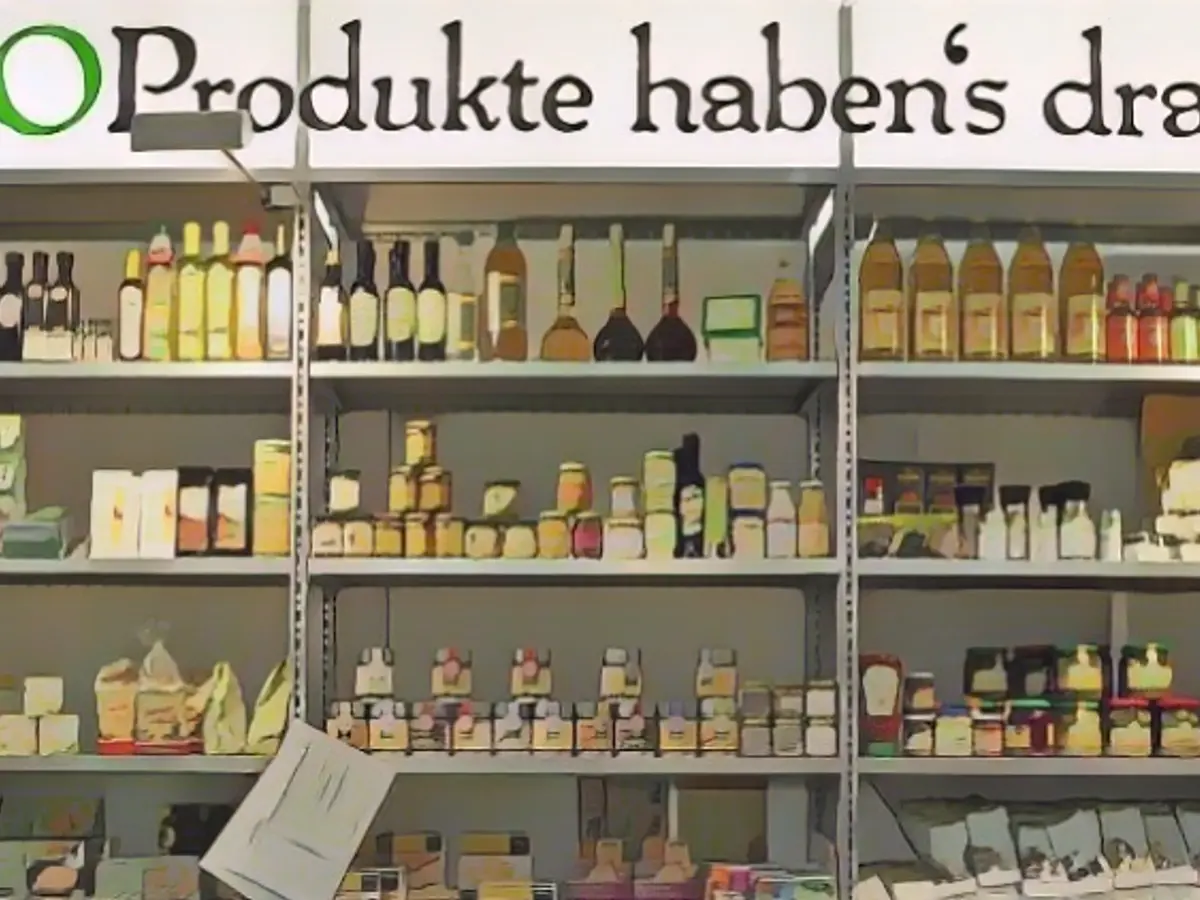Germans Shying Away from Organic Products Due to Finances and Doubts
People in Germany have a keen interest in eco-friendly items, but with rising costs, the fun seems to be waning. The demand for organic and eco-friendly products is significantly dropping, but there's more to it than just prices.
As per a Deloitte survey, not even half of Germans are buying sustainable organic and eco-friendly products consistently. The primary reason is the skyrocketing cost of living, revealed the consulting firm in their study. The survey was conducted with around 19,000 consumers in 19 different countries, including about 1,000 in Germany.
Egbert Wege, Deloitte's expert in consumer goods and retail, remarked, "People are becoming increasingly aware of climate change and sustainability, yet the portion of sustainable product purchases is continually decreasing." The number of those stating they buy sustainable products has gone from 59% in September 2021 to 45% in September 2023.
Some respondents questioned the worth. 12% admitted to recently forgoing sustainable products due to quality concerns. Even among those who recently purchased sustainably, 18% admitted to sacrificing quality, particularly in food, drinks, clothing, and footwear.
Wege warned manufacturers, saying, "When sustainability comes at a higher price in times of tight budgets, expectations of quality are particularly high." Price is "a decisive factor — for all income groups," wrote the industry experts. Lidl and Aldi, discount retailers, grew their organic product sales recently while the broader market for sustainable consumption declined, showcasing this trend.
Further Reading:
Despite their love for sustainability, many Germans are avoiding organic and eco-friendly products due to escalating food costs, causing a decrease in demand. Consequently, some consumers are doubting the value-for-money aspect of organic food, leading to compromise on quality.
Source:
Additional Insights:
The demand for organic and eco-friendly products is not uniformly dropping; instead, it is subject to various factors, like price and economic circumstances. Here's a brief overview:
- Sensitivity to Price: Despite strong interest in sustainability, high inflation rates and soaring food prices have induced cautious spending among German consumers. This has resulted in consumers opting for cheaper, non-organic alternatives or seeking cheaper alternatives within the organic category, particularly in discount retailers like Lidl and Aldi[1][4].
- Consumer Patterns: During periods of high inflation, consumers engage in bargain hunting and opt for cheaper options or buy less overall. This behavior is evident in the European organic food market, where demand decreased in the first half of 2023 as consumers sought budget-friendly options[4].
- Sales Trends: Despite organic food sales in Germany surging in 2023, reaching around EUR16.1 billion, this growth was primarily driven by rising prices rather than a decline in demand. The demand for organic products continues to be robust, driven by environmental concerns and consumer values[5].
- Market Evolution: The German organic food market is evolving, with full-range retailers (selling both organic and non-organic products) now accounting for most organic product sales. This signifies that organic products are becoming mainstream and accessible to a broader consumer demographic[1].
In conclusion, the demand for organic and eco-friendly products in Germany is not falling; instead, it is influenced by several factors, such as price sensitivity and economic situations. Although demand has fluctuations, the interest in sustainability and organic products remains strong, driving ongoing market growth.








